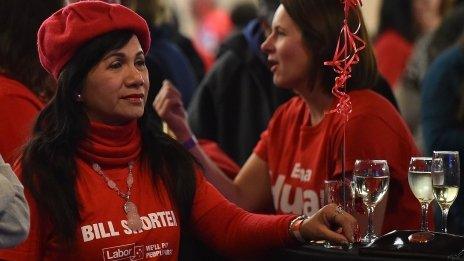Australia leaders in talks as hung parliament looms
- Published
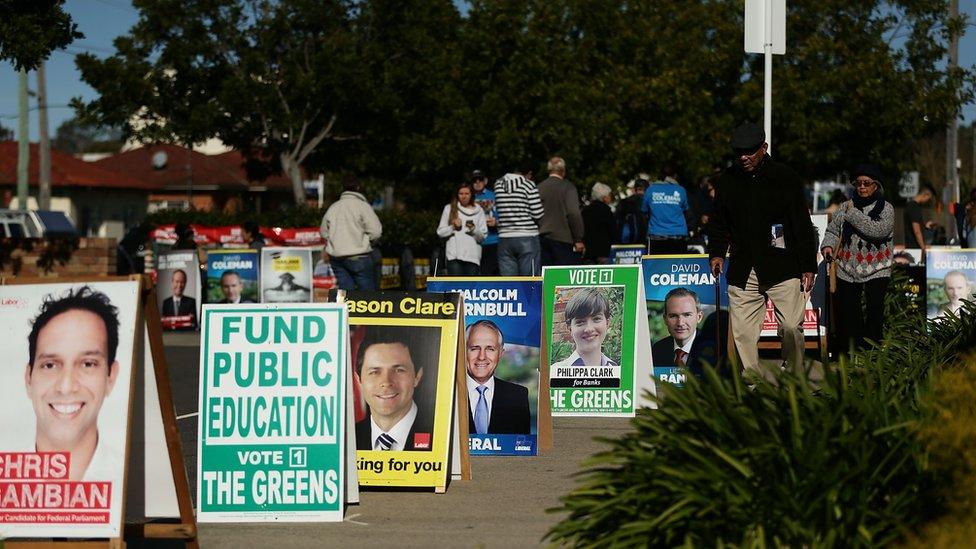
For the first time in decades, all lower and upper houses were being contested in a single election
The leaders of Australia's two main political parties have begun discussions with independent MPs about forming a minority government.
The result of Saturday's election is too close to call and the result will not be known until at least Tuesday.
At least 11 of 150 lower house seats remain in doubt.
The Australian Electoral Commission, external tally has Labor leading in 69 seats and the ruling Liberal-National coalition leading in 64 seats.
Prime Minister Malcolm Turnbull told reporters "the counting continues" while opposition leader Bill Shorten hit out at the "farcical" situation
Five seats are listed as close, and another six as "not yet determined". Counting of pre-poll, postal and absentee votes will resume on Tuesday.
Despite being behind in the official tally, Prime Minister Malcolm Turnbull said early on Sunday morning he still expected to get the 76 seats he needs to form a new administration. Postal votes are expected to favour his candidates.
Analysts are still predicting that Mr Turnbull's coalition will come closest to forming a government, though a hung parliament, where neither party has an absolute majority, is likely.
Election sizzles: Democracy with a side of sausage
Cartoon: Planet of Forbidden Prime Ministers
Are Australians ready to gamble on yet another PM?

Analysis: Shaun Davies, Australia Editor, BBC News Online
The result is not decided, but the blame game has already begun.
Even if Malcolm Turnbull manages to snag a working majority - and that looks increasingly unlikely - he still comes out the loser in this election. Critics are already calling him out, external for a "lazy campaign".
Turnbull must wear this, but the record strength of the independent vote suggests something larger at play than a prime minister who misread the public mood.
There's been a flight away from mainstream politics to those advocating protectionist and anti-immigration policies in the US, UK and much of Europe. It seems Australians are of a similar mind.
Up to 12 upper house seats will go to politicians from outside the mainstream, including anti-immigration candidate Pauline Hanson. This will create major headaches for whoever forms a government.

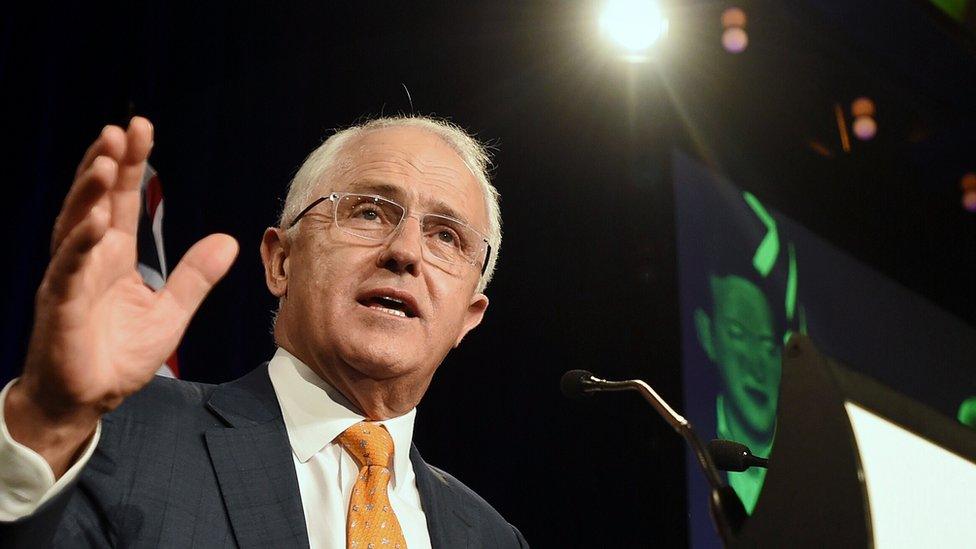
PM Malcolm Turnbull says he expects to get enough seats to form a government
Mr Turnbull confirmed he had held discussions with independent members of Australia's lower house, whose support he will need in a hung parliament.
These include Queensland independent Bob Katter, who said on Sunday he had drawn up a list of demands, and Senator Nick Xenophon, whose newly formed political party polled strongly and took a lower house seat.
Bill Shorten, leader of the Labor opposition, has also been talking to the crossbenchers, although most analysts believe it is unlikely he will be able to form a minority government.
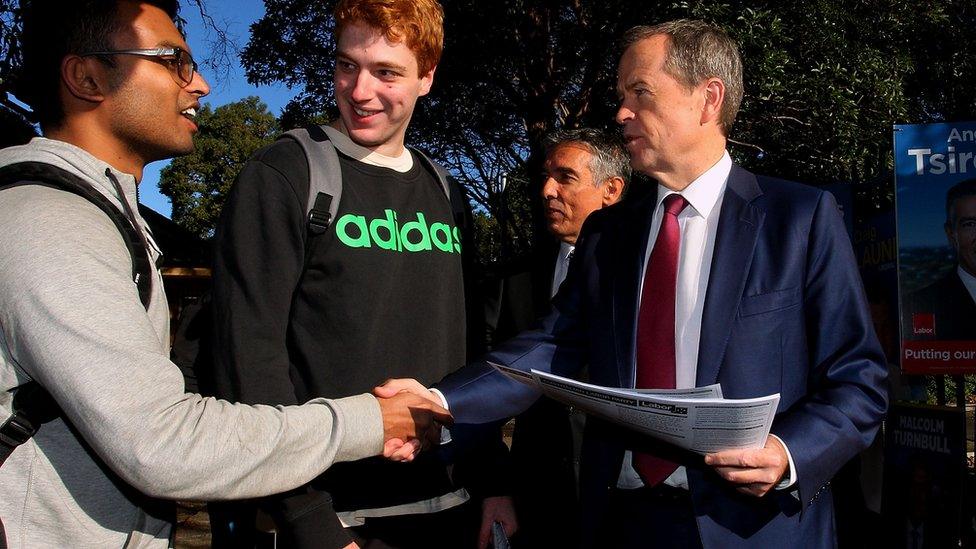
Opposition leader Bill Shorten has also been holding talks with independent MPs
All 150 seats in Australia's lower house, the House of Representatives, were being contested at this election, as were all 76 seats in the upper house, the Senate.
Nearly a quarter of Australians, external voted for a lower house candidate from outside the major parties. Results for the Senate vote are expected to take several weeks.
Tom Donkin explains why a result will not be declared for a number of days
It is the first time in decades that all the seats in both houses have been contested in a single election. The double-dissolution election, as it is known, was called by Mr Turnbull in an attempt to break a deadlock over industrial relations legislation.
Counting will not resume until Tuesday because postal votes, absentee votes and pre-poll votes need to be packaged up and returned to counting stations to be processed.
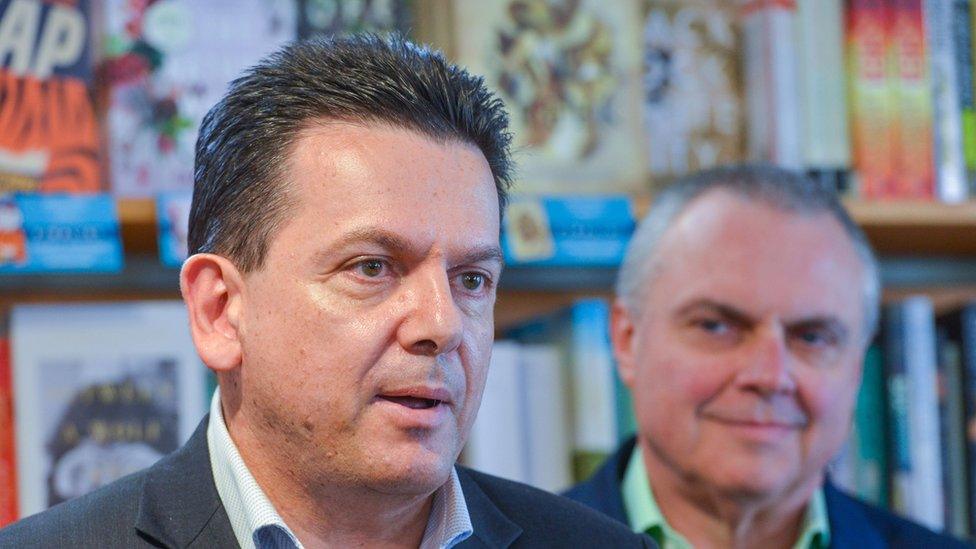
Nick Xenophon's party is expected to make further gains in the upper house
- Published30 June 2016
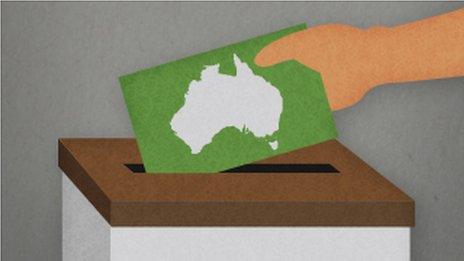
- Published28 June 2016
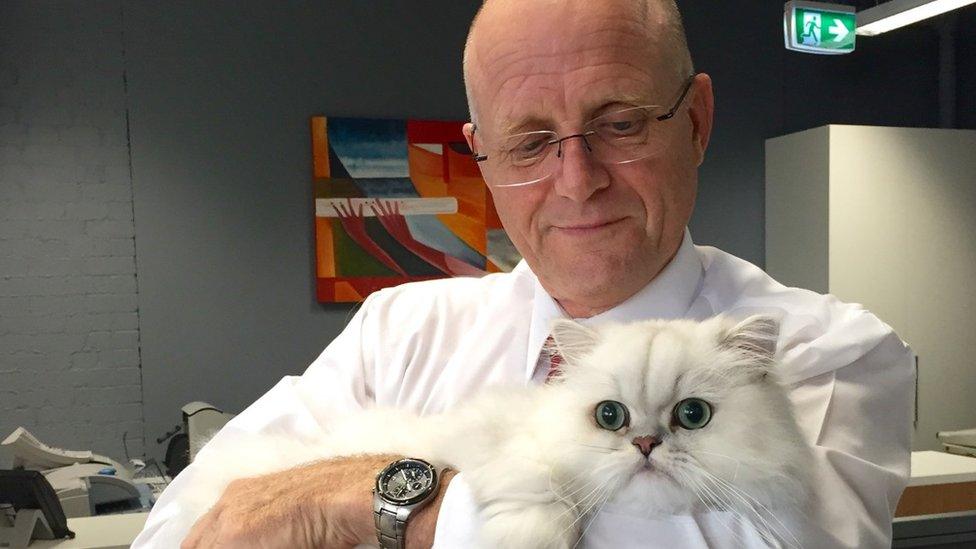
- Published2 July 2016
